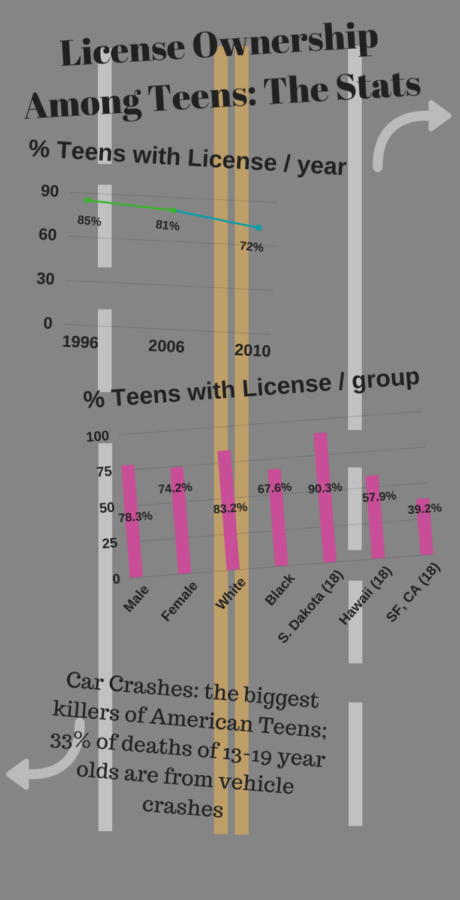Having a license unrealistically expected among Upperclassmen
March 5, 2018
The social expectation of juniors and seniors to have a driver’s license at Creek contributes to a divide between the wealthy and less wealthy students. It is unrealistic and elitist to expect high school students to have their license.
Juniors and seniors at many schools are expected to have their license, despite legitimate reasons students may not have their license. Additionally, if more students wait until they are 18 to get their license, it would prevent possible crashes and deaths.
Students between 15 and 18 are more likely to get in crashes than adults. This expectation at schools, such as ours, likely contributes to dangerous driving.
There is no problem with students who are responsible drivers who will not cause crashes driving. However, there are many reasons an upperclassman might not have a license.
Students might be unable to get their license because of health problems or disabilities in certain cases, such as epilepsy. Their family may not be able to cover the economic costs, their parents may not believe students should drive.
Younger teens and teens who recently got their license are the most at risk of accidents. Cell phone use, alcohol use, speeding, and other teen passengers further increase the chance of a crash.
Students may be more likely to spend time with people with licenses. Seniors are looked down on as lacking maturity for not having their license.
The percentage of teens with a license has been steadily decreasing in the last few decades. In 1996, 85% of US high school seniors had a license, in 2006, 81% had a license, and in 2010, only 73% had one.
Furthermore, the percentage of high school students with a job and that go on dates have also decreased.
According for the Center for Disease Control, 2,333 teens (16-19) were killed and 221,313 were injured in car crashes in the US in 2015. This means an average of 606 teens were injured in crashes every day.
This number is almost certainly a result of generally Whites having a higher income, able to to cover economical burdens of having a driving teenager.
Along with teens driving who aren’t really ready contributing to crashes, this could cause an equity issue here. Less wealthy students who can’t get their license may not be as liked as those with licenses.



















